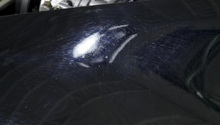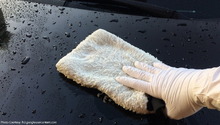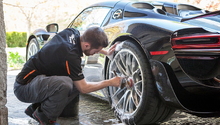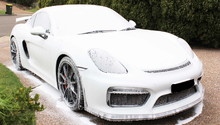Porsche: How to Make Your Own Car Wax
If you've ever wanted to cook up a batch of car wax, then you've come to the right place. Learn about the process here.
This article applies to the Porsche 993, Porsche 928, and Porsche 997 (1979-2012).
Applying car wax is one of the best ways to protect the exterior surfaces of your Porsche from elements like rain, dirt, and road salt. However, purchasing the right wax product can cost significantly more than buying the ingredients to make a few batches yourself. Making your own car wax is a fairly simple process that doesn't require special skills. Like any product, a good wax is only as good as its ingredients. Carnauba wax is an important component, but it serves as just the base. When combined, the proper ingredients create a lubricated, soft wax with excellent buffing and drying capabilities. As long as you have the proper materials and follow the instructions carefully, you'll find this DIY to be a worthwhile experiment that will make your Porsche shine like new.

Materials Needed
- 1/2 cup carnauba wax
- 2 tbsp yellow beeswax
- 2 cups turpentine
- 1 tbsp pine oil
- Gloves or hot pads
- Double boiler
- Stovetop
- Wooden mixing spoon
- Plastic or tin container(s)
Before you begin, perform a quick Google search for retailers that sell Carnauba wax, yellow beeswax, pine oil, and turpentine. These products can be purchased online through Amazon and eBay, and will cost from $4 to $10 each. You can also pick them up at retailers like Walmart, Sears, and Lowe's and save some money on shipping fees. Retail car waxes range in price from $10-$70 depending on quality; however, the benefit to making your own wax is that this particular combination of ingredients will make a quality product.
Step 1 – Prepare the double boiler
Fill the bottom portion of the double boiler about halfway with water. Place it on the stove top.
Pro Tip
It's recommended to use or buy a boiler that will only be used for wax melting. Wax can be difficult to remove, and it's not advised to use the boiler for cooking food after it has handled these ingredients.
Step 2 – Heat the waxes
Place the 1/2 cup of carnauba wax and 2 tbsp of yellow beeswax into the top portion of the double boiler. Then place, the top portion of the boiler on top of the bottom portion that's filled with water. Turn the heat to medium-low and let the waxes melt. Using the wooden spoon, stir the waxes until mixed to a smooth consistency.
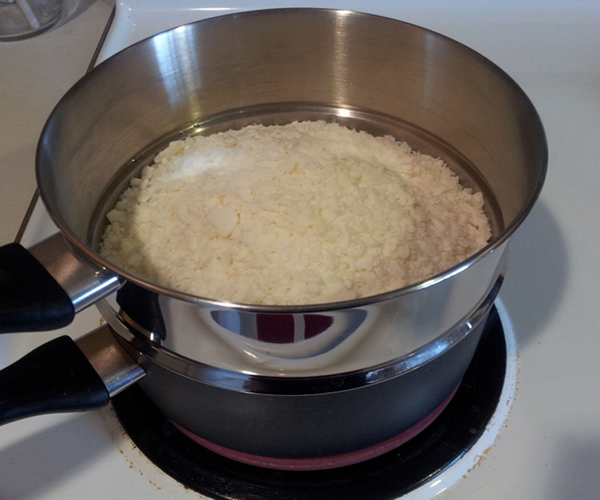
Step 3 – Set mixture aside to cool
When the waxes are melted, turn off the heat. Handle the top portion of the boiler with care and set the mixture aside, letting it cool just until it starts to harden.
Warning
The boiler will be hot. Wear gloves or use a hot pad when handling the boiler to prevent burning yourself by accident.
Step 4 – Mix in turpentine and oil
While the waxes are just beginning to harden, add the two cups of turpentine and 1 tbsp of pine oil to the mixture in the boiler. Stir all ingredients together with a wooden spoon.
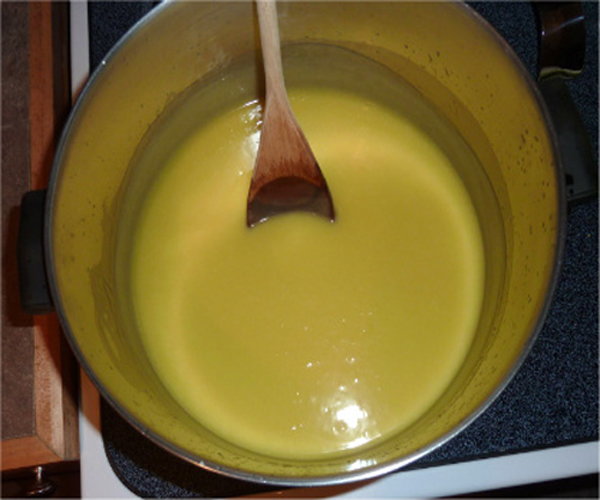
Step 5 – Transfer the wax to container(s)
Transfer the liquid wax mixture to a large plastic or tin container for storing until you are ready to use it. It will harden to its proper consistency after being transferred.
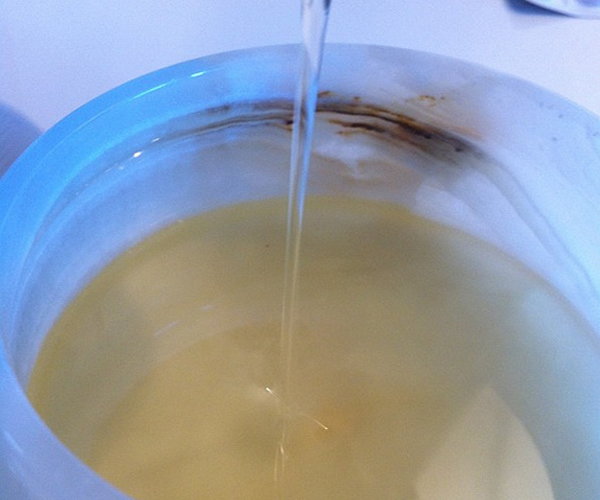
Pro Tips
- In order to ensure the longevity and effectiveness of the wax, it's best to store it in a cool, dry place.
- Make sure the container is sealed tight to help preserve its contents.
- The wax can become destabilized if it freezes or heats up when exposed to direct sunlight. If you live in a colder climate, it's best to not store the wax in a glass container, as it might break under freezing temperatures.
Step 6 – Clean up
There will likely be some hardened wax leftover in the boiler. Fill the boiler halfway with water and return it to the stove top, turning the heat on high. When the water boils, turn off the heat and remove the boiler carefully from the stove top. Dispose of the water and simply wash and rinse the boiler as you would any other kitchen pot, with soap and hot water.
Pro Tip
Pour the water into a container of which you can use to dispose the liquid somewhere other than your kitchen sink. It's advisable to do so because the leftover melted wax could potentially clog your drain.
Related Discussion and Sites
- Best Wax to Use on Our Porsches - Rennlist.com
- Make Your Own Carnauba Car Wax - Detailingworld.co.uk
- Carnauba Wax - Camdengrey.com
- Yellow Beeswax - Amazon.com
- Pure Turpentine - Amazon.com



